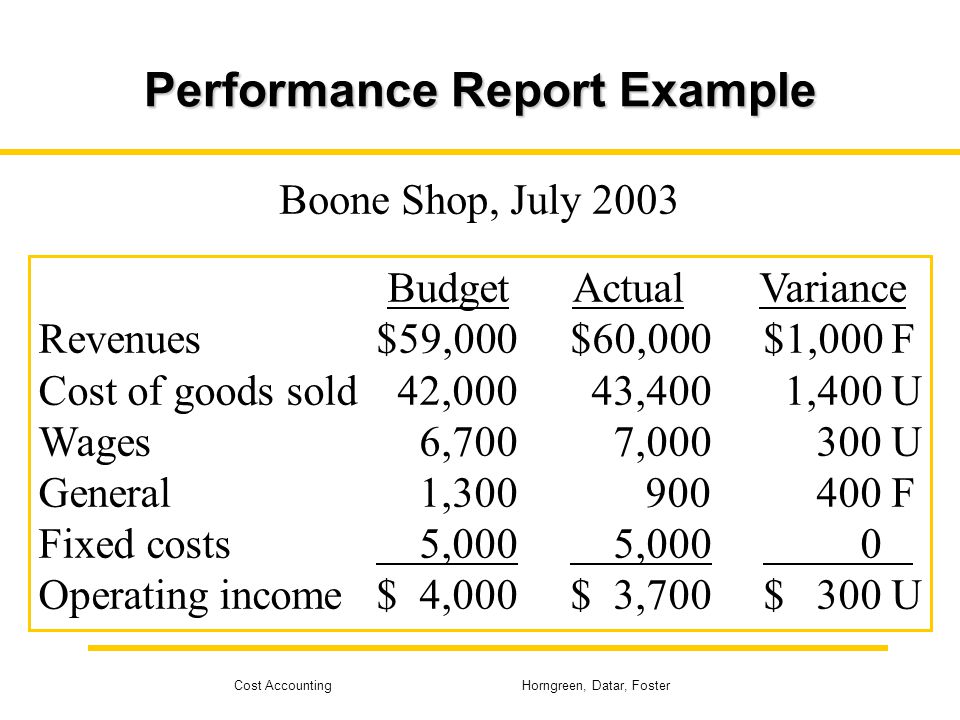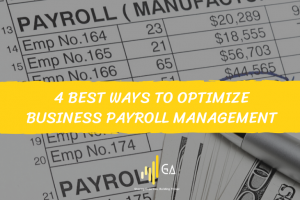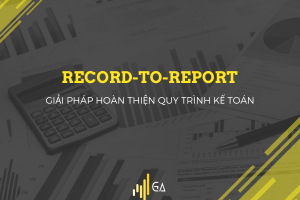Hotline:
+84 934241168Business owners and managers are faced with countless decisions every day. There are various questions they have to answer like Where did my Profit go? What’s driving sales? What’s my staff productivity like? How is my business tracking compared to others in the industry? All information they need are provided by management accounting. Managerial accounting […]
Business owners and managers are faced with countless decisions every day. There are various questions they have to answer like Where did my Profit go? What’s driving sales? What’s my staff productivity like? How is my business tracking compared to others in the industry? All information they need are provided by management accounting. Managerial accounting provides information to people inside the organization to make the best decisions, which is different from the financial accounting, which deals with information outside the organization.
The role of a management accountant is of great importance for a firm’s well-being. Management accounting refers to a function of tracking internal cost for business process that helps owners or managers make decision related to production, operation and investment, thereby leading to business goals achievement. Business owners need management accounting reports to get deep insight into the efficiency of their budget, the cost and their operations which enables them to allocate funds accordingly in production, sales and investment. As a result, even a single miscalculation or underestimation of any business plan by a management accountant can put a company’s future in danger.

Managerial accounting is the process of collecting, analyzing and reporting information about the operations and finances of a business. Thus, managerial accounting plays an important role in the management process, mainly providing information to internal users of organization which enables managers to have data-driven input to make such right decision. Small businesses can leverage this powerful trove of calculations to improve decision-making over time for higher profitability and greater competitive advantage. There are some crucial functions of accounting management including as follows:
Management accounting plays an important role in each function of the management process: planning, controlling, organizing, communicating and motivating. All these function has impact on the decision-making process and therefore, any manager should get better understanding how to use management accounting information.
| Management functions | Description | Managerial accounting |
Planning |
|
|
Controlling | A comparison between achieved and planned performance, so that deviations from the plan can be identified and corrected. |
|
Organizing |
|
|
Communicating |
| |
Motivating |
|
|
A management accountant shall coordinate with all related department information which includes estimation of cost of raw material, labor, manufacturing, sales and advertising, social media networking, lobbying and company’s internal operation cost to make an overall analysis of company’s functioning capital and availability of funds to CEOs or managers of organization. Thus a CFO is a source of information required by directors and CEOs to take decisions.
Here are a few common types of managerial reports.
Does your business rely heavily on extending credit? Then an account receivable aging report is vital to your operations. This report breaks down the remaining balances of your clients into specific time periods allows managers to identify the debtors and identify issues in the company collection process.
If your company has many debtors, you may need to a complete rehaul to tighten up credit policies as cash flow is critical to the operations of any business. A company should always know who owes them what.

The performance of a whole company, each department and each employee are considered at the end of each term in performance reports. These reports are used to make important decisions about the company’s future. Under-performers are sometimes let go and individuals who achieve or over-achieve their goals are rewarded for their commitment to the business. Performance reports can show flaws in workflow setups if let’s say for example a whole department is somehow not performing to a certain capacity. A performance report is an important tool to stay on track a company’s mission.
Managerial accounting determines the costs of articles that are manufactured. All raw material costs, overhead, labor and any added costs are considered, and those totals are divided by the amounts of products produced.
A cost report offers a summary of this information. This report offers showcases the cost prices of items versus their selling prices for managers. Using these reports, profit margins are estimated and monitored.
Better optimization of resources can be achieved by having this understanding of all expenses, including inventory waste, hourly labor costs, and overhead costs.
Other managerial reports that are vital to every business include order information reports, project reports, competitor analysis and many other similar reports.
These reports are either created internally or outsourced through professionals depending upon your company’s capability to handle reporting requirements. To make the most informed decision companies and managers must have access to authentic data and credible managerial accounting reports.
Get your business on the right track today by learning more about managerial accounting reports with GA’s management accounting outsourcing service. Contact us via the hotline or leave your information here, GA Advisor will contact you as soon as possible!
GA ADVISOR VIET NAM
EMAIL: info@gaadvisor.net

How to track your business finances all year long?
An easy way to begin with tracking your business finances is to get to know the 3 basic financial reports that can help you to evaluate your business’ financial health.

4 best ways to optimize payroll management that business owners should know
Payday sounds exciting to the employees, but for HR or accounting team, this process can be so nerve-racking due to the complexity of payroll management.

Record-to-Report là gì? Quy trình R2R giải pháp hoàn thiện quy trình kế toán
Quy trình hoàn tất phê duyệt tài chính (financial close) có thể là một ác mộng đối với bộ phận kế toán. Yêu cầu gửi về ngày một khó hơn, cùng với đó, công ty cần cập nhật báo cáo và phân tích nhanh hơn. Không phải phóng đại nhưng công ty càng phát triển, […]
Lasted news

